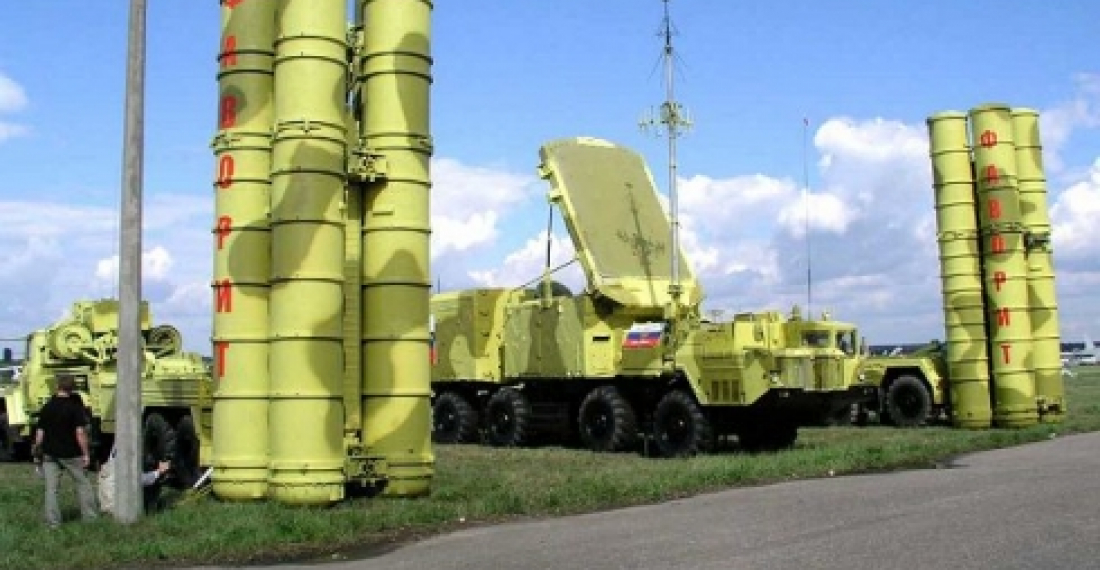Armenia and Azerbaijan are engaged in massive efforts to monitor each other's military capacities and movements. The two countries have been locked in an unresovled conflict for the last two decades. Whilst major military hostilities ended with a cease fire in 1994 no peace treaty was ever signed, and the two states remain in a state of war. Every now and then the world gets a glimpse into the extent the two countires monitor each other's military activity.
Yesterday, the President of Armenia Serzh Sargsyan, visited the National Security Threat Analysis Centre which is part of the National Security Council of Armenia where Centre officials briefed the Armenian leader of the work done and further programs. Of interest is that on this visit Sargsyan was accompanied by the Secretary General of the Collective Security Treaty of Organization (CSTO), Nikolay Bordyuzhha, who has become a frequent visitor to Yerevan and by the President of Rostelecom Company Sergey Kalugin, adding to speculation that the president was reviewing new equipment that had been received, or plans to do so.
On the same day, perhaps by coincidence, perhaps not, the commander of Azerbaijan's Air Defense Forces, Major General Altay Mehdiyev, in a rare briefing to the Press, said that Azerbaijan now had sophisticated equipment that "could detect a plane taking off from Armenia's Zvartnots airport after rising 10 meters". The General said that Azerbaijan has the strongest air defense system, which very few countries in the post-Soviet area have. Azerbaijan's system fully covers the air defense of the country", according to the Azerbaijani News Agency APA.
The agency noted that in recent years, Baku has acquired sophisticated anti-aircraft complexes and radiolocation equipment. S300 PMU-2 Favorit anti-craft complexes purchased from Russia in 2011 are most powerful among them, and that all civil and military airplanes of Azerbaijan have already been equipped with IFF (Identification Friend or Foe). It allows the Air Defense Forces to get information about all aircrafts entering the country's air space, according to the source.
In the meantime, another Azerbaijani media outlet, the 1news.az web portal, yesterday also carried a story about the transfer of Russian equipment from the Military base in Gyumri to the Armenian military. Quoting diplomatic sources in Vienna, the portal says that at a recent inspection in the framework of the Conventional Forces in Europe (CFE) Treaty two unreported military bases and 283 military items including 76 tanks and 60 armoured vehicles were discovered.These items correspond to a similar list of items that earlier had been reported by Russia as having become obsolete from its base in Gyumri, whilst in fact they were transferred to the Armenian army in violation of the Treaty. For good measure the agency tried to hit two birds with one stone by saying that European countries have only just started taking an interest in Russian and Armenian violations of the CFE Treaty, and that this was due to Armenia's recent decision to abandon plans to sign an Association Agreement with the EU and to join the Russian backed Customs Union instead.
Commonspace.eu political editor said in a comment, that "it is well known that the military and security organisations of Armenia and Azerbaijan closely monitor each other's movements. In a situation where confidence between the two countries is non existant such monitoring is necessary and in many ways helpful since it reduces chances of misperception. On the other hand misperception remains the single most dangerous problem. A move by one side can be interpreted wrongly by the other. Seeing is one thing, understanding what you are seeing is very often more difficult. Around all of this are concerns about the role of Russia, which seems to provide the equipment to both sides, leading to the question, are Armenia and Azerbaijan seeing everything, or are they seeing what Russia wants them to see?"
source: commonspace.eu with APA, 1news.az, and Armenian media sources.
photo: An S300 PMU-2 Favorit anti-craft complexes similar to the ones Azerbaijan purchased from Russia in 2011







